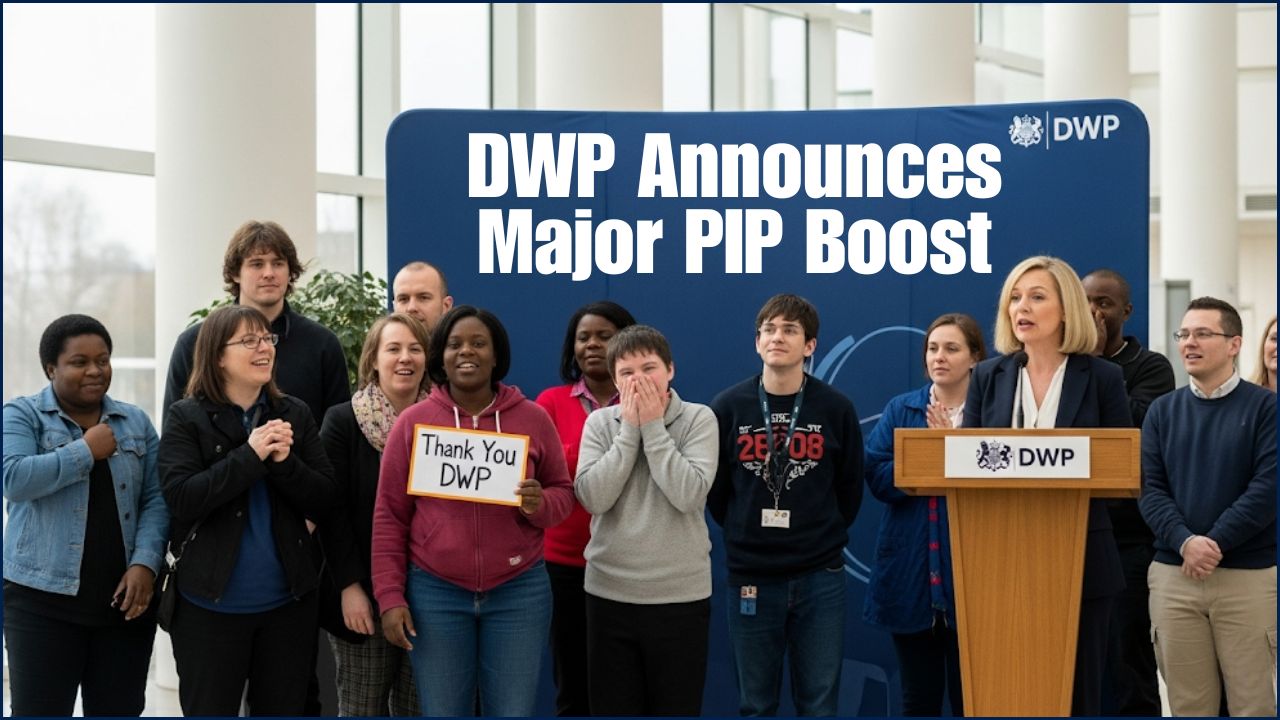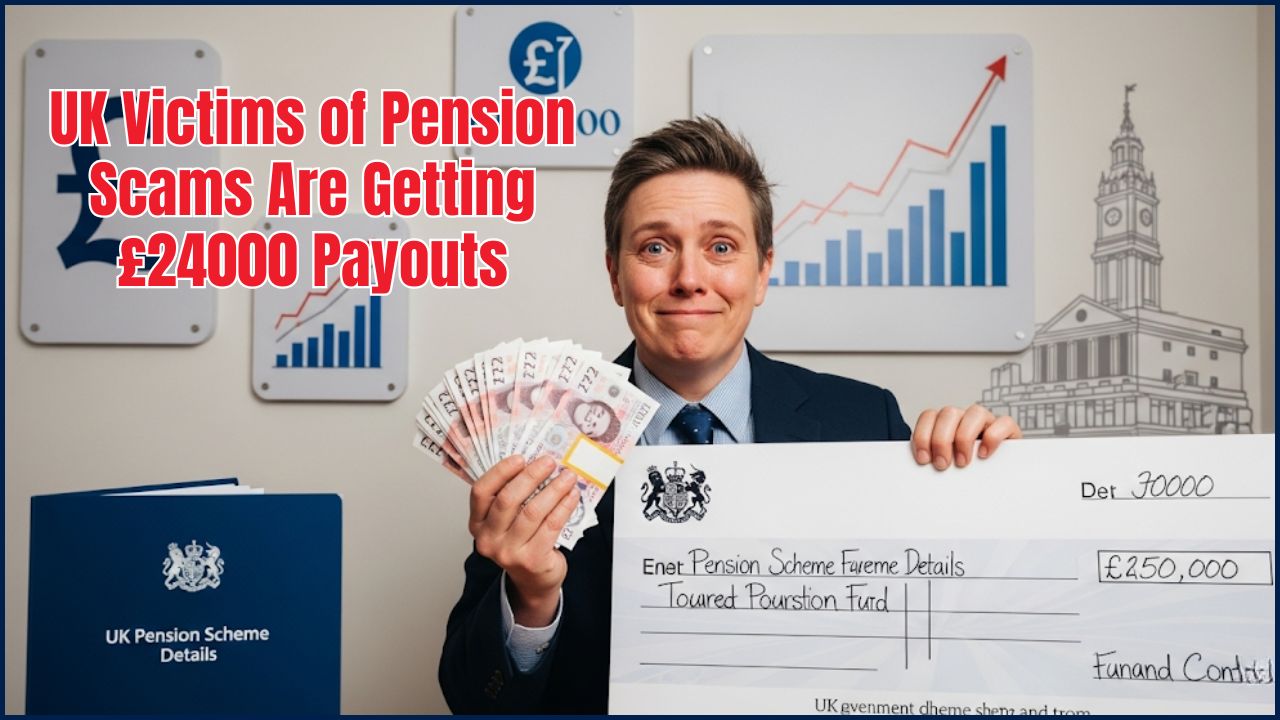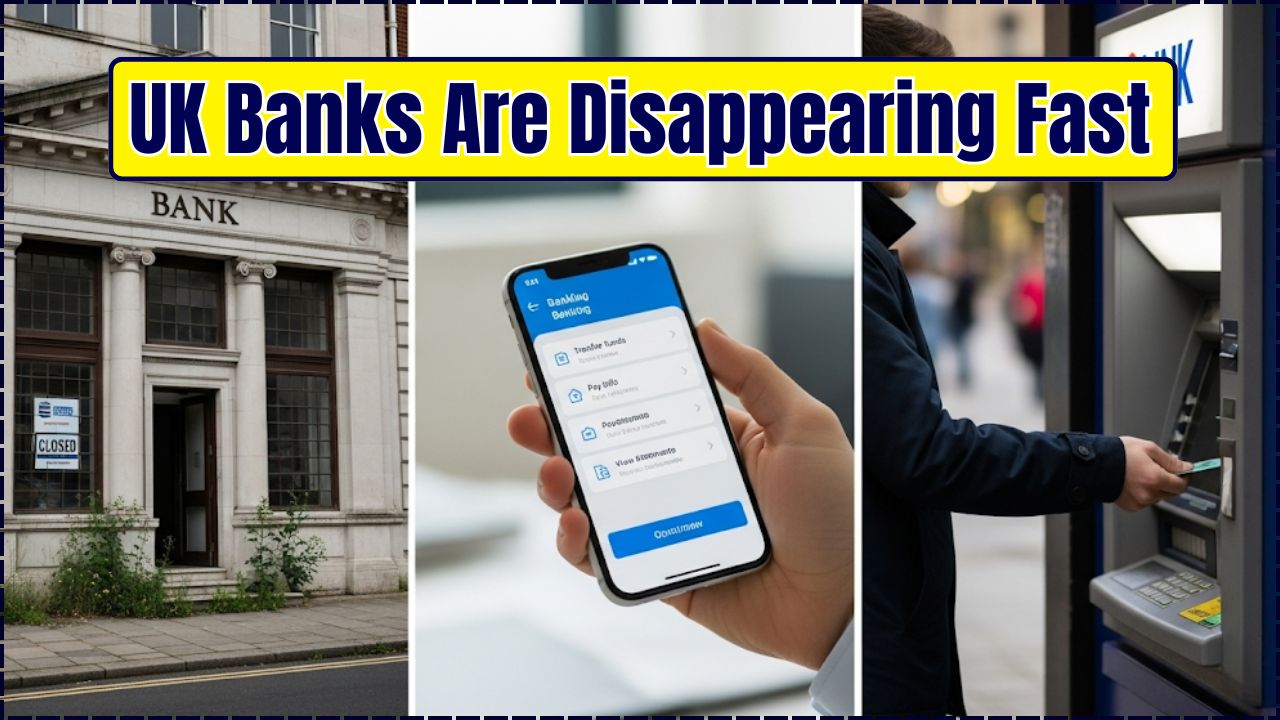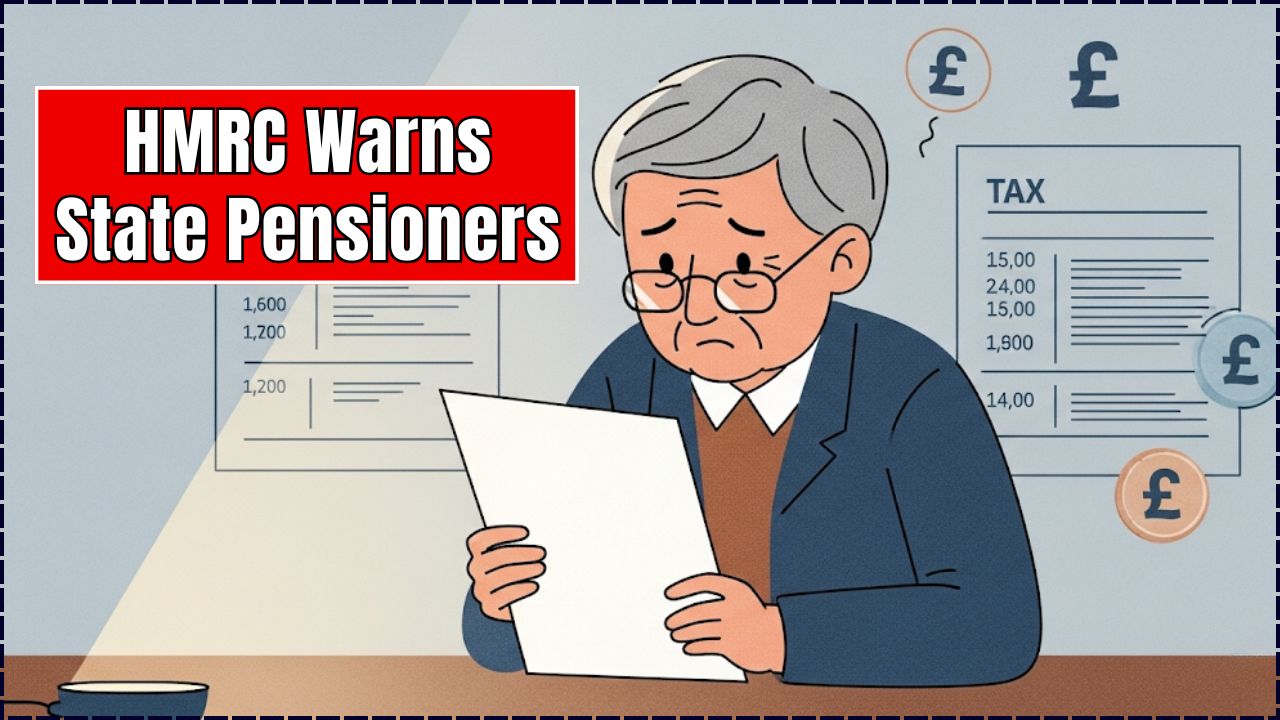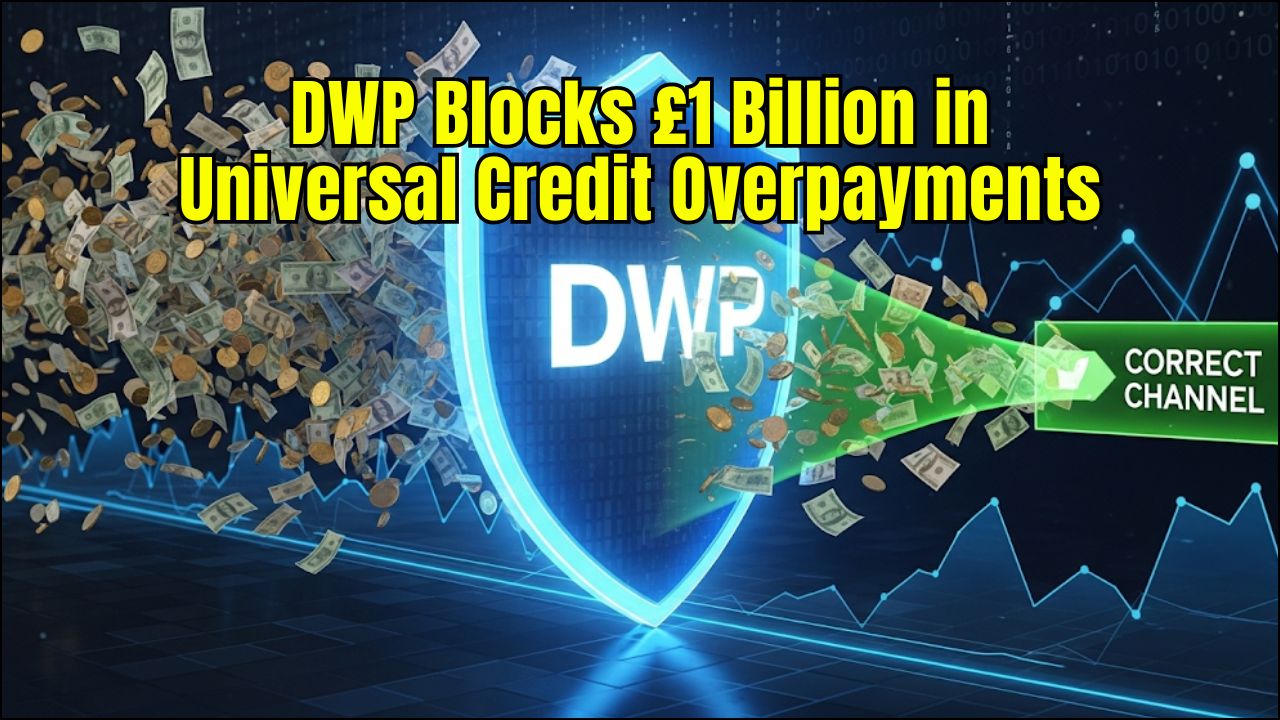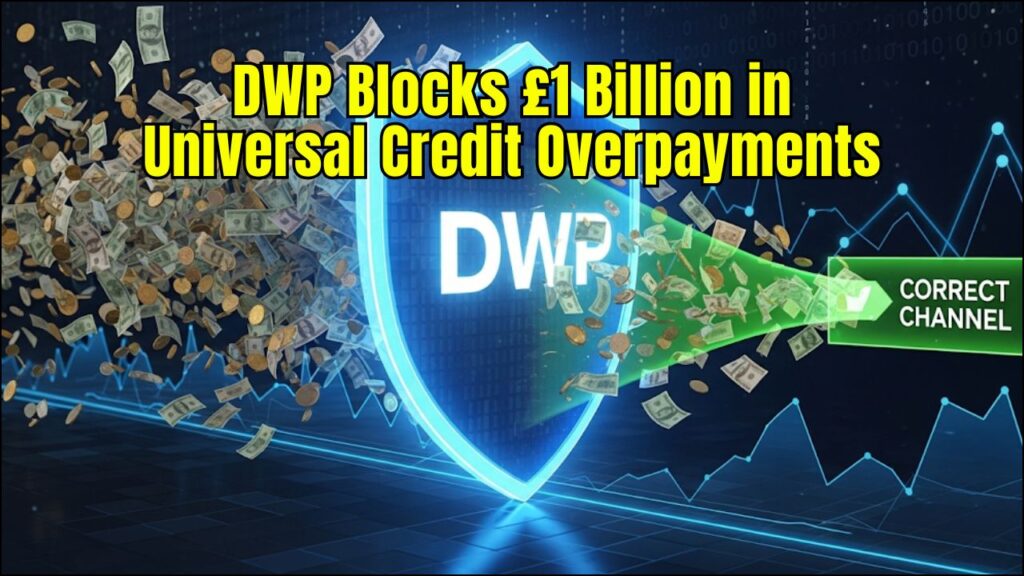
The Department for Work and Pensions (DWP) has officially blocked £1 billion in Universal Credit overpayments—a jaw-dropping figure that’s making waves in the UK. For folks living on benefits, taxpayers, and even policy nerds, this move has huge consequences. But here’s the kicker: while this sounds like a victory, there are still some messy realities that everyday people need to know.
Let’s break it all down in a way that even a 10-year-old could follow, while still keeping it smart enough for policy professionals.
DWP Blocks £1 Billion in Universal Credit Overpayments
| Topic | Details |
|---|---|
| What Happened | DWP blocked £1 billion in incorrect Universal Credit payments (2022–2025). |
| How They Did It | Through Targeted Case Reviews and doubling staff to nearly 6,000 reviewers. |
| Impact on Claimants | Prevents debts, but critics warn that even DWP mistakes can still lead to repayment demands. |
| Future Savings | Estimated £13.6 billion saved by 2030 from fraud/error prevention. |
| Controversy | Aggressive debt recovery practices spark calls for reform from charities and experts. |
The DWP’s move to block £1 billion in Universal Credit overpayments sounds like a financial win, but for many families, the story’s more complicated. Yes, fewer surprise debts is a good thing. But aggressive recovery tactics, especially when errors aren’t the claimant’s fault, are sparking outrage.
If you’re on Universal Credit, the best defense is knowledge and vigilance. Stay on top of your claim, keep records, and don’t be afraid to challenge mistakes.
What’s Universal Credit and Why Do Overpayments Happen?
Universal Credit (UC) is the UK’s flagship welfare benefit, rolling six older benefits into one. It’s like a one-stop shop for folks needing support with rent, childcare, or job-hunting.
But mistakes creep in. Common reasons?
- People don’t report income changes fast enough.
- Circumstances change (new job, breakup, moving homes).
- DWP makes admin errors.
That last one’s a big deal because even when it’s their mistake, you may still have to repay.
How the DWP Blocked £1 Billion
This wasn’t luck—it was strategy. Starting in 2022, the DWP launched the Targeted Case Review program, basically a mass audit.
- Staff doubled: From about 3,000 to nearly 6,000 staff by July 2024.
- 1 million cases reviewed: Catching fraud, errors, and forgotten updates.
- Future impact: A forecasted £13.6 billion in savings by 2030.
In short, they used manpower, better data, and stricter checks to catch overpayments before money hit claimants’ bank accounts.
Real-Life Example: Meet Sarah
Take Sarah, a single mom in Birmingham working part-time. She didn’t realize her new childcare grant counted as “income.” Normally, she might get overpaid for months, then blindsided with a demand to repay thousands. Thanks to the new reviews, her claim was flagged quickly, corrected, and she avoided being buried in debt.
This is the kind of situation where early intervention works in people’s favor.
Overpayments: Official Error vs. Claimant Error
Overpayments can happen for different reasons. Here’s a simple breakdown of how they compare and what they mean for you.
| Feature | Official Error | Claimant Error |
| Cause | A mistake made by the DWP. | A mistake made by the claimant, like not reporting a change. |
| Who is at fault? | The DWP. | The claimant. |
| Who has to pay? | The DWP can still recover the money. | The DWP can still recover the money. |
| What to do? | Challenge the decision if you believe you were entitled to the money. | Report changes in circumstances immediately to prevent further issues. |
The Other Side: Why Critics Are Concerned
1. Harsh Debt Recovery
When overpayments slip through, the DWP claws them back fast—sometimes taking 15% of someone’s Universal Credit each month. For families already struggling, that can mean skipping groceries or rent.
2. Punishing People for DWP Mistakes
In 2023–24, there were 686,756 new “official error” UC overpayment debts. Even when the fault lies with the DWP, repayment is usually demanded. Only about 10 waivers were granted out of 337,000 no-fault overpayment cases in 2020–21.
3. Mental Health Toll
Charities like Money and Mental Health warn that sudden deductions cause anxiety, depression, and even food insecurity. For some, it’s not just money—it’s survival.
A Look Back: The Carer’s Allowance Scandal
This isn’t the first time benefit overpayments hit the spotlight. Remember the Carer’s Allowance scandal? Thousands of unpaid carers were overpaid due to outdated systems, then slapped with repayment notices. Some owed tens of thousands through no fault of their own.
That scandal set the stage for today’s heightened scrutiny of how the DWP manages debt.
Comparing to the U.S.: SNAP & Unemployment
To put this in perspective, the U.S. has faced similar issues. Programs like SNAP (food stamps) and unemployment insurance also see overpayments. The U.S. Government Accountability Office found over $4 billion in unemployment overpayments in 2020 during COVID chaos.
But here’s the difference: in many U.S. states, if the overpayment wasn’t your fault, you can often get a waiver. That’s a policy many UK campaigners want mirrored.
Practical Advice: Protect Yourself From Overpayment Debt
Here’s your checklist:
- Report changes ASAP – New job, pay raise, childcare? Update UC immediately.
- Keep records – Save letters, payslips, and updates to prove your side.
- Check your payments – Don’t assume the DWP always gets it right.
- Challenge mistakes – Use Mandatory Reconsideration.
- Seek help – Contact Citizens Advice or StepChange for free debt advice.
Do’s and Don’ts (Quick Guide)
Do
- Double-check UC statements monthly.
- Ask for a written debt breakdown.
- Appeal if you believe it’s unfair.
Don’t
- Ignore letters from DWP (they’ll escalate fast).
- Panic—help and repayment plans exist.
- Assume it’s unchallengeable.
Top 3 Mistakes to Avoid with Universal Credit
- 1. Not Reporting Changes Immediately: Failing to report a change in your living situation, job status, or savings can quickly lead to an overpayment. Don’t wait—update your journal as soon as something changes.
- 2. Ignoring DWP Letters: If you receive a letter or notification in your online journal about an overpayment, don’t ignore it. Respond promptly and ask for a detailed explanation if the decision isn’t clear.
- 3. Assuming the Error Was Your Fault: Many overpayments are due to official error. If the DWP made a mistake, you can challenge the decision and argue that the money should not be repaid. Seek advice from a professional if you’re unsure.
Expert Voices
- Martin Lewis (Money Saving Expert) has warned that recovering debts from vulnerable families is “reminiscent of the Carer’s Allowance scandal.”
- Public Law Project urges reform, saying “over 30 charities demand protection from harmful debt caused by official errors.”
- DWP’s official line: Blocking overpayments “protects taxpayers and prevents claimants from falling into debt.”
FAQs
Q1: Can overpayments affect my credit score?
Not directly. But if it escalates to debt collectors, yes—it could.
Q2: What’s the difference between fraud and error?
Fraud = knowingly misreporting. Error = mistake by you or DWP. Both can lead to repayment demands.
Q3: Can I refuse to repay an overpayment?
No. Unless waived, DWP has legal power to recover, even through deductions.
Q4: How fast do deductions start?
Often within weeks. But you can negotiate lower rates.
Q5: Will Universal Credit stop completely if I owe money?
No, but deductions will reduce what you receive until debt is cleared.


